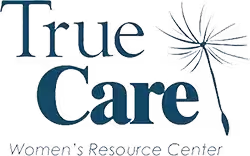Women considering abortion often feel pressured to do so. Such stresses may be circumstantial, relating to the woman’s life situation, or they may be personal, affected by her relationships. Perhaps she is a college student, or soon will be, and she believes she has to choose between school and being pregnant. Maybe her partner or her parents want her to abort, and she feels she must in order to keep a positive relationship with that person. Many women who come to True Care express such concerns, from education and finances to boyfriend/husband or parental pressures.
A few years ago, a woman called the True Care Scheduling Line and told our Scheduler that her husband, upon learning she might be pregnant, wanted her to abort. She, however, didn’t want to have an abortion. Our staff member scheduled her for an appointment to confirm her pregnancy, review her options, and provide her with community resources. The next day, the woman called again and cancelled her appointment, saying her husband found out about it, was angry, and was taking her to Colorado for an abortion. She was a woman who felt pressured to have an abortion she did not want to have.
That scenario is not uncommon. According to a study recently published in the Journal of American Physicians and Surgeons, nearly 75 percent of the 987 American women who participated in an after-abortion survey admitted that they experienced “at least subtle forms of pressure to terminate their pregnancies.” Two other findings are significant: (1) nearly 60 percent of the women indicated that they decided to abort “in order to make others happy” and (2) almost 30% of those surveyed admitted that they were “afraid that they would lose their partner” if they didn’t abort their pregnancies. There were other important findings as well, such as almost half saying they believed their unborn was a human being at the time of the abortion, and nearly 70 percent saying the abortion decision was “one of the hardest decisions” they ever made. Read the report here: http://www.jpands.org/vol22no4/coleman.pdf.
Coerced Abortion
As the above-referenced study points out, some women are coerced by parents, boyfriends, husbands, teachers or work managers to abort their pregnancies. That is not a choice, it’s an ultimatum – and it’s illegal. No one can force a woman or teenager to abort; those who do can be criminally prosecuted. Some states have fetal homicide laws where any third party who causes a baby in the womb to be killed may be prosecuted (see Lawrence v. State, 211 S.W. 3d 883, 884-85 [Tex. App. –Dallas 2006). The Federal Unborn Victims of Violence Act is another law that can be used to prosecute those who force or coerce a woman to have an abortion.
For more information on coerced and forced abortion, visit the Justice Foundation’s website: http://thejusticefoundation.org/cafa/.
Other Pressures
Women facing an unplanned pregnancy may have other pressures to abort: education, finances, work, or lack of health insurance, among other situations.
According to the Guttmacher Institute, about 75 percent of women who had an abortion in 2014 were assessed as poor or low-income. Concern for the ability to care for a baby is a major reason women gave for having an abortion. According to the study, the three most common reasons for having an abortion were: the inability to afford raising a child; the belief that having a baby would interfere with work, school or the ability to care for dependents; and concern for or responsibility to other individuals. Half of the survey respondents said they did not want to be a single parent or were having problems with their husband or partner.
Help for Those Concerns
There are many resources and options for women who experience unplanned pregnancies, and True Care is here to help. Our Resource Coordinator and Program Director work in conjunction with our Nurses and Advocates to provide guidance on community resources and various in-house programs as well as agencies in Casper that can benefit women facing an unplanned pregnancy.
Schedule your free pregnancy test by calling or texting 307-215-9684 and learn more about your pregnancy options and all the resources and programs available to you if you are pregnant.
